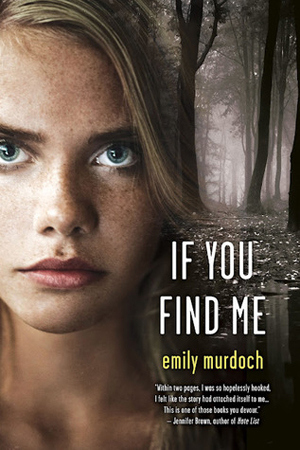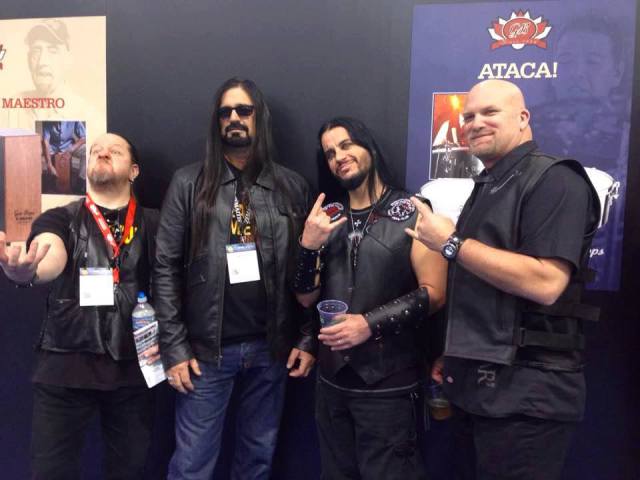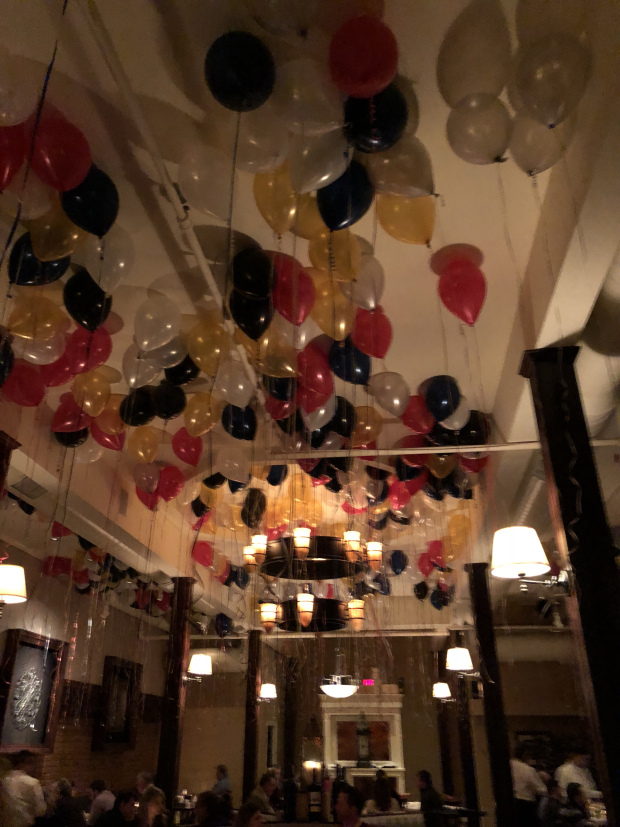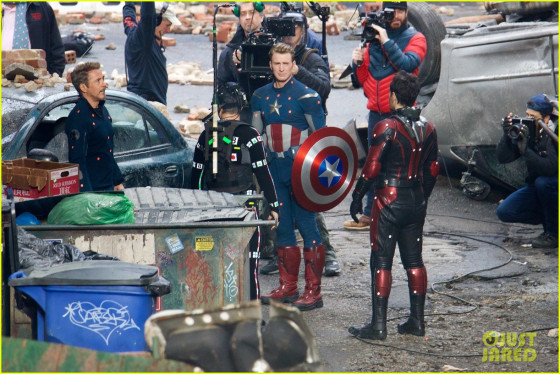 “You’re powerful, Clara. Or you could be, if you would let go of your fear long enough to realize it.”
“You’re powerful, Clara. Or you could be, if you would let go of your fear long enough to realize it.”
☆☆☆☆1/2
The clock chimes midnight, a curse breaks, and a girl meets a prince…but what follows is not all sweetness and sugarplums.
New York City, 1899. Clara Stole, the mayor’s ever-proper daughter, leads a double life. Since her mother’s murder, she has secretly trained in self-defense with the mysterious Drosselmeyer.
Then, on Christmas Eve, disaster strikes.
Her home is destroyed, her father abducted—by beings distinctly not human. To find him, Clara journeys to the war-ravaged land of Cane. Her only companion is the dethroned prince Nicholas, bound by a wicked curse. If they’re to survive, Clara has no choice but to trust him, but his haunted eyes burn with secrets—and a need she can’t define. With the dangerous, seductive faery queen Anise hunting them, Clara soon realizes she won’t leave Cane unscathed—if she leaves at all.
Inspired by The Nutcracker, Winterspell is a dark, timeless fairy tale about love and war, longing and loneliness, and a girl who must learn to live without fear.
This book, you guys. THIS BOOK. Oh my god, I’m speechless and yet I have so many things to say. I have been wanting to read this book for a good year and a half now (apparently I marked this as to read in July 2016?? Insane!) and finally, finally, I have read it and it was so worth the wait. There were so many aspects that pulled me towards this book but it was these two in particular that truly drew me: it’s a fairytale retelling, which I love, and it’s inspired by The Nutcracker which is one of my all time favourite stories. It doesn’t even matter what it is but if The Nutcracker is involved I am guaranteed to love it. The Nutcracker Suite by Tchaikovsky? My favourite piece of music ever written and arranged, especially The Waltz of the Flowers. The movie Barbie in The Nutcracker? Iconic. The MAC makeup line inspired by The Nutcracker? A true must-have for me. And nutcrackers are so beautiful, I want to buy them all! Hell, when I got my rose gold iPhone a year and a half ago I named it Clara, after Clara in The Nutcracker. I am OBSESSED with The Nutcracker and that’s how I knew that this book would be the one for me. But this isn’t your typical Nutcracker story. Oh no, it’s much more darker and twisted than I could’ve ever imagined and it was fantastic. I’ve read a lot of fairytale retellings and not to be dramatic or anything, but this is probably the best retelling I’ve ever read. If it weren’t for some teeny tiny things I’d give this book 5 stars without hesitation but I think a 4.5 star rating is a great reflection of my love for this book.
I usually don’t reveal spoilers for standalones like this but part of me feels like I need to in order to give a proper review so a minor SPOILER ALERT is now in effect.
THE GOOD- As I’ve already stated, this is without a doubt the best fairytale retelling I’ve ever read. Am I saying this because The Nutcracker is one of my favourite stories? Partially. But what makes this retelling the best I’ve ever read is how original it felt to me and how unique it was, how much it ventured away from the fairytale and became it’s own work completely. The only other time I felt this way about a retelling was with Marissa Meyer’s series The Lunar Chronicles, which was inspired by various fairytales such as Cinderella, Red Riding Hood, Rapunzel, and Snow White, but was set in a futuristic sci-fi world that gave it that separation from the inspiring tales and that is exactly what happened here as well. Instead of going to the future like Meyer did, Legrand began her story in 1899 in what was essentially Victorian New York. Most retellings I’ve read are either way in the future or way in the past so this was quite interesting to be in the late Victorian era. But then we go to Cane and it’s like a completely different world there, and not because it’s literally a different world. It’s like we went from Victorian New York, which gave off a lot of gothic vibes in my opinion, which I loved, to Cane which is so full of technology and is like a world you’d find in a sci-fi novel. Steel buildings, mechaniks that attacked you, cambots that recorded and displayed your every move to the entirety of Cane, and faeries infused with metal and wiring for battle. I was already sold on this being a gothic fairytale retelling but then Legrand stepped up her game and gave me like, a gothic steampunk sci-fi retelling and essentially blew my mind. But what I loved most about this retelling and what made it so unique in my opinion was how it was so loosely inspired by The Nutcracker and ventured so far away from the true story but still felt true to it, in a way. We had all the important characters such as Clara, Prince Nicholas, and Drosselmeyer but there was no Mouse King, save for giant rat-like creatures called loks, and the Sugar Plum Fairy was a wicked faery-human halfbreed queen that drugged her kingdom with sugar. Instead of being transformed into a nutcracker, Nicholas was turned into a metal statue, staying true to the steampunk vibe from Cane, by the faery queen Anise and was still saved by Clara all the same. I loved how much Legrand made this her own tale immediately when you meet Clara and see how she’s not the sweet girl you expect her to be but one who’s been trained to fight and even potentially kill and thieve. You see how the only sweet thing about the land of Cane is the sugar drug flowing through everyone’s veins. We still hit all the important points of the fairytale, like the battle at midnight on Christmas Eve, travelling through Cane, discovering the identity of the Prince, defeating the queen and breaking her curse, Nicholas and Clara falling in love, and finally Clara returning home to New York. But Legrand did it her own way and in her own time and created such a dark and thrilling story that’s inspired by one that is so beautiful. I’ve only touched on the important factors but there’s so much more that’s made this retelling so special and unique and I don’t think I’ll ever be over how amazing it is.
- What do I always say? That’s right, what truly makes a book good is the writing and the writing in this book was superb. It didn’t feel like some of the typical YA writing you usually encounter in this genre (I can’t describe it but I’m sure you know what I mean) and it actually reminded me of the kind of writing you might find in a gothic story, which is why I got so many gothic vibes from this book, other than the obvious reasons. It had a certain dark undertone to it and the overall style that Legrand wrote in even felt slightly gothic and Victorian. I don’t know, maybe that’s just me and I’m weird. But there was such an interesting flow to her words and the way she described events in her story. I’ve once described Victoria Schwab’s writing as being melodic, particularly in her Monsters of Verity series, which had a heavy musical element to it, and I feel like the writing here is the same. It had the flow of a composition almost, which would make sense because of Tchaikovsky’s music and the corresponding ballet. It was beautiful when there were romantic scenes between Clara and Nicholas and dark and twisted when we ventured the darkest parts of Cane or saw the Prince’s Army fight against Anise, like how in a composition you have the contrast between first and second movement, the latter which is typically darker and moodier, and then finally hit the crescendo and excitement in the final movement. That’s how I feel about Legrand’s writing and I don’t care if she did this intentionally or not but I’m describing her writing this way anyways. But hands down, my favourite thing about her writing was how it was connected all around. Before each part, there was a short first person narrative that told the tale of Cane and what happened before Anise’s reign, of how she came to be, and of Nicholas’s life growing up. You quickly figure out it’s Nicholas telling this story and by the end of the book, you see him telling Clara the story of her mother and it begins the exact same way this book opens up. Nicholas’s tale not only gave you, the reader, context but it also connected you to Clara and Nicholas even more and created a circle, almost. It was smart on Legrand’s part and I think it just emphasizes how great of a writer she is by doing this. I love when stories have that slight fourth wall break and connect in itself. Truly wonderful.
- This deserves to be it’s own point because it was my favourite thing that Legrand did with her writing and overall world building. You know when you have these kind of stories that have secret worlds that you can only enter through certain doorways or areas? And then you get the vague explanation of how time passes, like how any amount of time spent in Narnia is literally no time passing in England? Well, boys and girls, Ms Claire Legrand gave us a solid explanation for how time passes between worlds and it makes sense! It appears that for every day spent in Cane, 6 hours go by back in Clara’s home of New York. She would have to spend 4 days in Cane for a full day to go by in New York and if a year passes in New York it’ll be 4 years in Cane. It’s so simple! And it never changes regardless of how much time passes either here or there! Isn’t that amazing? As soon as I saw this explanation I almost jumped for joy because while it’s great that no time passes while you’re in Narnia, you’ll most likely give yourself a headache trying to figure out how much time has passed every time you see the Pevensies and Eustace Scrubb back in Narnia. Claire Legrand 1, C.S. Lewis 0.
- Oh Clara, my dear Clara, how I loved her so. First of all, the fact that Legrand wrote her as being able to defend herself and having an affinity for daggers was the best thing ever and what I loved most about Clara because it emphasizes her power and strength before discovering her magic. But Clara wasn’t perfect and had her fair share of flaws, and that’s why I felt like she was the perfect protagonist. She trained to be able to defend herself but never really had the strength to carry it out, and she had a relative naiveness to her still. It wasn’t really until she got to Cane that she found that true strength within herself, beyond her self defence and fighting she learned with Drosselmeyer, and she discovered this all on her own; not because of Drosselmeyer, not because of Nicholas, but because of herself. And I loved how smart Clara is and how that really showed through her manipulation of Anise. She picked up on how lonely Anise truly was, understood why she acted a certain way, and used that to her advantage and essentially manipulated Anise with her sexuality, which I loved seeing (shout out to Legrand for not keeping her story strictly heteronormative). I also liked how we got that typical villain versus hero “we’re the same, you and I” conversation but instead of the cliched denial of this, Clara admitted that she and Anise were the same but to some degree. Again, it pointed out Clara’s faults and made her more of an imperfect hero. While Clara had all this strength and power within her, she never became cold or hateful because she had so much love in her heart and I think that’s what separates her from all the “strong female protagonists” I’m used to seeing in YA. Sometimes authors forget that being emotional and feeling in general is a sign of strength and I think it’s because Clara felt so much, whether it was good or bad, is why she was so strong. I feel like Clara developed so much throughout the course of this story and truly became the kind of person you’d underestimate and it’s why I love her so much.
- I think there were two main purposes or messages to learn in this story. One was prejudice and how such a deep hatred for someone or something can really change how one thinks, and the other was the idea of choice. In Cane, a faery and a human aren’t allowed to procreate, that is until Anise’s father had an affair with a faery and she was born. For everyone, she was seen as an abomination. Everyone mainly feared her because of what she could do and hated her because she should not exist. The humans had always hated the faeries, especially because of Anise’s creation, and it was something that ran deep for Nicholas. He was so filled with hate that he didn’t know any different but he wanted to unlearn all this hate and be better. Clara is essentially what made him want to be better. I think the human versus faeries was a good way to intertwine this kind of social commentary and I love how it was handled in the end. The other idea, which is choice, was more focused on Clara and her character. In the beginning of the story, being a woman in New York, 1899, she has little to no choice in anything. She’s forced to endure the touch and stares of a creepy man, forced to accept his wish to marry her, and forced to do the will of Concordia to keep her sister safe. But when she’s in Cane and when she’s with Nicholas, she finally discovers what it’s like to have a choice. Nicholas swears to her that he’ll never force her to do anything and that she’ll always have a choice and I respect that so much. She chose to do all those things in the end to save him, to protect him, and was never forced by Nicholas’s hand. Clara’s entire development, I think, revolved around her being able to have a choice and was beyond important. Thinking about the time period and how things are done within the context of the story makes it even more important and probably one of my favourite things to come of this book.
- I understand that Nicholas was raised on hate and prejudice and knew nothing else, but he disappointed me when he immediately feared Clara after discovering her true bloodline and went as far as saying he’d force her to bond with him. I also get that he needed to do all that in order for his own development to take place, even Clara’s development in a way, but it just really made me sad and angry that Drosselmeyer was right about this. I still adore Nicholas but I’d rather pretend he didn’t say this about Clara.
- The whole thing with Clara and Dr. Victor made sense for her development and especially the idea of choice in this story but it gave me the creeps. The fact that he told her it was her fault that he looked at her that way? Disgusting. Again I know, it’s 1899 and no one gives a shit about women in that time but still, yuck. But it’s ok, he got what he deserved in the end and Clara is still amazing.
- This is not your typical fairytale retelling but it’s one that you definitely need to read. It is beyond unique and is oozing with originality yet still has the feel of The Nutcracker that we all know and love. I didn’t expect this world that Legrand created but it’s definitely one of the best I’ve ever ventured to. If you love retellings, you’ll love this book.
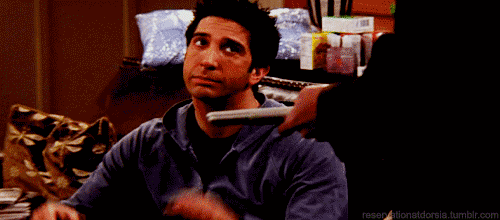
Title: Winterspell
Author: Claire Legrand
Release Date: September 30, 2014
Pages: 464 (Paperback)
Goodreads
Until next time,
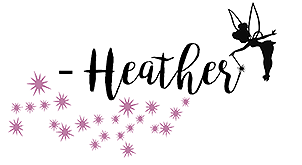
What did you think of the book? Leave a comment below!
Advertisements Share this:
